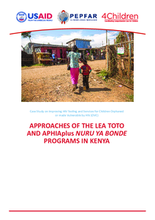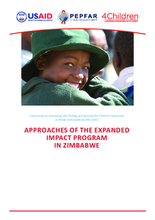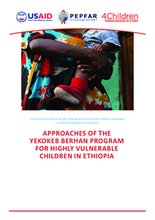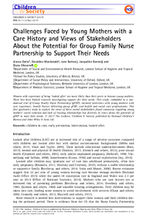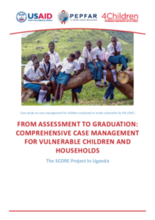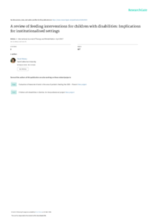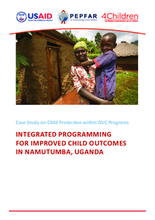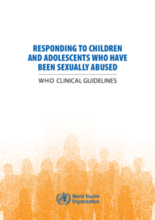Displaying 121 - 130 of 243
In this case study, Coordinating Comprehensive Care of Children (4Children) documents and evaluates the work of COGRI’s Lea Toto program and the FHI360 led APHIAplus program in Kenya.
In this case study, Coordinating Comprehensive Care of Children (4Children) documents and evaluates the work of the World Education/Bantwana Expanded IMPACT program in Zimbabwe.
In this case study, Coordinating Comprehensive Care of Children (4Children) documents and evaluates the work of Pact's Yekokeb Berhan Program for Highly Vulnerable Children in Ethiopia.
This qualitative study, embedded in a randomised trial of the Group Family Nurse Partnership (gFNP) program, was designed to explore the challenges faced by women with experience in the care system during pregnancy and early parenthood and to assess the potential of gFNP to meet their needs through the perspectives of a range of informants.
This case study describes the case management system developed by the Sustainable Comprehensive Responses for Vulnerable Children and their Families (SCORE) project in Uganda.
This study from the the Special Issue on Kinship Care of the Child Welfare Journal uses nationally representative survey data to describe differences in characteristics, adverse family experiences, and child well-being among children in kinship care with varying levels of involvement with the child welfare system in the US.
This literature review looks at the most current interventions on safe feeding practices for children with neuromotor disabilities who cannot feed themselves.
The aim of this study is to assess the nutritional and cognitive status in institutionalized orphans which might help to formulate effective interventions for improving the nutritional status of vulnerable children in future.
This case study describes the process, methods and results of the approach promoted by World Education’s Bantwana Initiative under two USAID/PEPFAR-funded consortium projects in Uganda: SUNRISE-OVC and STAR-EC.
This guideline aims to provide evidence-based recommendations for quality clinical care for children and adolescents who have, or may have, been subjected to sexual abuse, in order to mitigate the negative health consequences and improve their well-being.

